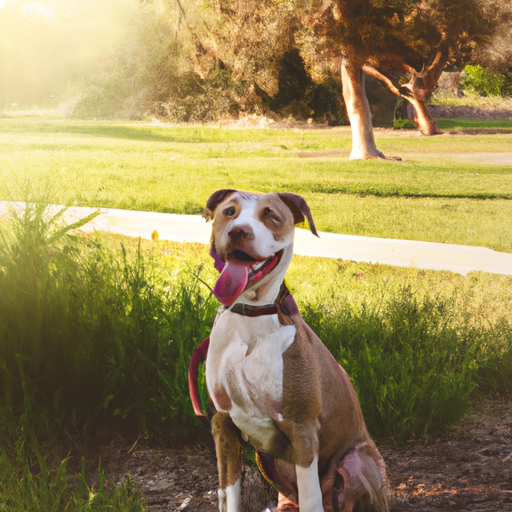Getting to Know Your Furry Friend
First off, let’s get to know your furry friend a little better. Dogs are known for their loyalty and unconditional love. But did you know they can also be great stress-busters? Yes, you read that right.
Here’s what science has to say about it:
-
Boosting Mood: Just being around a dog can lift your spirits. This is because interacting with dogs can increase levels of the hormone oxytocin in your body, which promotes feelings of happiness and wellbeing.
-
Encouraging Exercise: Dogs need to be walked regularly and playing with them can provide a good form of exercise. Regular physical activity is known to reduce symptoms of depression and anxiety.
-
Providing Companionship: Dogs offer unconditional love and companionship that can help alleviate feelings of isolation and loneliness.
The Science behind the Serenity
Now let’s dig into the science behind how dogs can help with stress, anxiety, and depression.
- The Oxytocin Effect: When you pet a dog, your body releases oxytocin, a hormone that induces feelings of love, trust, and relaxation. Simultaneously, it decreases cortisol, the so-called “stress hormone.”
- Distraction Strategy: Having a dog can distract you from your worries. After all, it’s hard to dwell on negative thoughts when you’ve got a wagging tail and a wet nose nudging you for attention.
- Social Connection: Dogs can act as social catalysts. Walking your dog or taking it to a dog park can help you connect with other dog-lovers, which can ease feelings of loneliness and boost your mood.
| Positive Effect | Explanation |
|---|---|
| Oxytocin Boost | Petting a dog increases your oxytocin levels |
| Distraction | Dogs distract you from negative thoughts |
| Social Connection | Dogs can help you connect with others |
The Paws-itive Impact of Dogs on Mental Health
You’re not just imagining it. Dogs really do have a positive impact on mental health. They are not just pets; they can be lifelines for those struggling with mental health issues.
- Dogs provide a sense of purpose and responsibility, which can be crucial in overcoming depression.
- They offer a comforting presence during anxiety or panic attacks.
- Dogs can provide a distraction from negative thoughts and help break the cycle of chronic worry and fear.
The Role of Service Dogs in Mental Health
Service dogs are not just for physical disabilities. They can also be trained to assist individuals dealing with mental health issues such as PTSD, anxiety, and depression. These dogs are trained to perform specific tasks to help mitigate symptoms of a mental health disorder.
- Interruption: They can interrupt self-harming behaviors or distract from anxiety-inducing situations.
- Grounding: In the case of a panic attack, a service dog can provide physical comfort and grounding.
- Alert: Service dogs can also be trained to alert for help in a crisis situation.
FAQs
Q: Can any dog breed help with stress and anxiety?
A: While all dogs can provide companionship and love, some breeds are especially known for their calming effects on humans. These include Labrador Retrievers, Golden Retrievers, and Cavalier King Charles Spaniels.
Q: How can I train my dog to help with my anxiety?
A: Training your dog to help with anxiety involves teaching them to respond to anxiety cues. This could be as simple as having them come to you when you’re feeling anxious to offer comfort.
Q: What if I’m allergic to dogs but still want the benefits?
A: There are hypoallergenic dog breeds that are less likely to trigger allergies. These include the Poodle, Shih Tzu, and Bichon Frise. Always spend time with a dog before bringing them home to see if you have an allergic reaction.
Remember, while dogs can provide immense emotional support and comfort, they’re not a substitute for professional mental health treatment. Always seek the advice of a mental health professional. Dogs are a wonderful supplement to a comprehensive mental health care plan.



